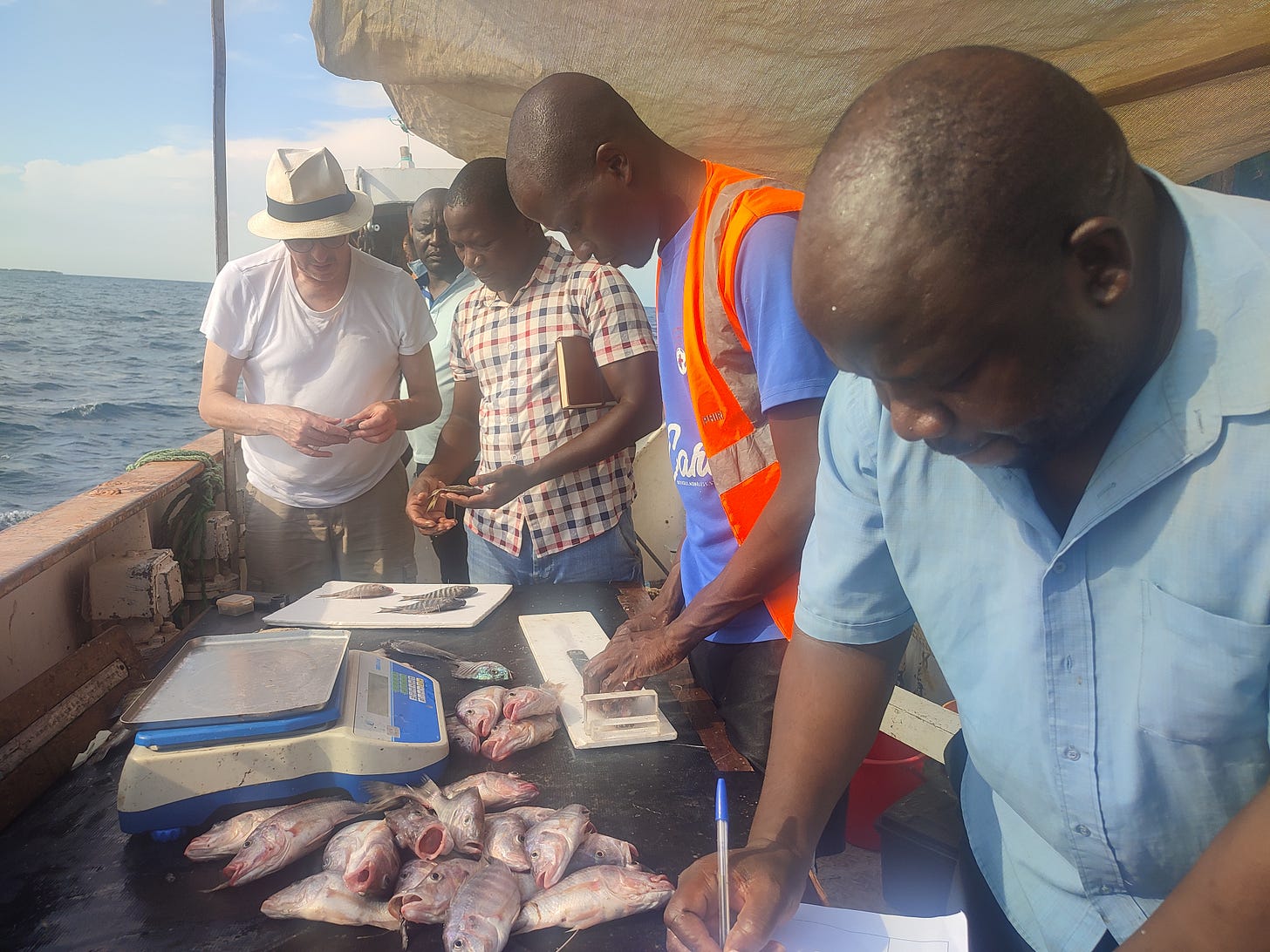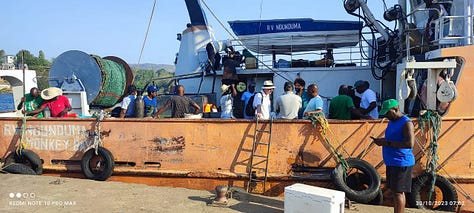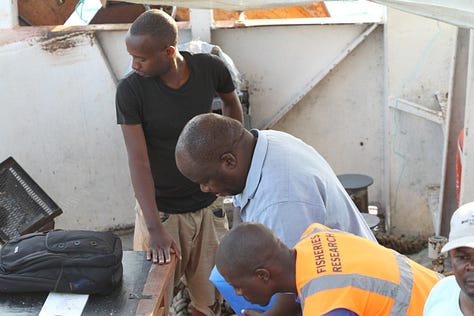TRAWL SURVEY - Malawi & Mozambique in joint fish survey as per SADC protocol on shared water course
The 2023 biomass trawl survey intends to cover one hundred and sixteen transects in Lake Malawi and six on the Niassa side in Mozambique leading to a total of 122 transects across the entire Lake

NKHATA-BAY, Malawi (Planet Defence) – Malawi and Mozambique are conducting a wide biomass assessment survey on both sides of Lake Malawi / Niassa respectively as the shared watercourse serve populations through various ecosystems services including support to many livelihoods.
Malawi Department of Fisheries through the Capture Fisheries Division in conjunction with the Oceanographic Institute of Mozambique experts are both involved with the main objective of monitoring fish biomass and diversity stocks on the Lake.
The two countries previously conducted a similar exercise during the Southern Africa Development Community (SADC) under the Global Environment Facility Project that was being implemented in the early 1990’s.
Salim M’balaka, Malawi’s Principal Fisheries Officer in the Fisheries Department and Team Leader of the 2023 biomass trawl survey said in an interview aboard the research vessel Ndunduma around Bandawe in Nkhata-Bay that the survey is scheduled to run for a period of thirty days from the commencement day of 28th October, 2023.
“The survey intends to cover one hundred and sixteen transects in Lake Malawi and six on the Niassa side in Mozambique leading to a total of 122 transects across the entire Lake,” M’balaka made the revelation.
The specific objectives are to assess current fish biomass levels by supplementing bottom trawling with hydroacoustic techniques; Determine fish population structures, abundance, distribution and diversity; Assess the physical, chemical and biological parameters in Lake Malawi / Niassa; Determine relationships between fish abundance and distribution with water quality variables and finally establish allowable number of fishing boats of the commercial trawl fishery.
Several researchers have been drawn from the Department of Fisheries, Oceanographic Institute of Mozambique, University of Rhode Island, University of Cambridge, University of Antwerp and the Malawi University of Science and Technology.



Dr. Maxon Ngochera, Malawi’s Senior Deputy Director of Fisheries responsible for Capture Fisheries told Planet Defence in an exclusive interview this survey is very significant because, it will reveal how much fish [standing biomass] we still have in our Lake. He also added that results will also determine species diversity especially in trawlable areas.
“We are excited that, this year, the colleagues from Mozambique have brought with them a new technology using hydroacoustic that will determine the biomass without actually catching the fish. It's an environmentally friendly method of assessing standing biomass. This collaboration will mean that we will develop management options for the Lake together,” Dr Ngochera said in an interview.
According to Dr Ngochera, fish do not know water boundaries and therefore it is only proper that we synchronize our management options on the shared water course.
Professor Emmanuel Kaunda, Vice Chancellor of the Lilongwe University of Agriculture and Natural Resources which runs a fisheries science course at both under-graduate and post graduate level and has functional centre of excellence on the same lauded the move, “this is very commendable” while asking for more time to delve into the survey itself he told Planet Defence from the United States of America where he is currently on duty.
Claque Maunde, a fisheries research expert from Mozambique who is part of the research team said we are here together in Malawi to conduct a joint survey using hydroacoustic equipment.
This equipment, is associated with ordinary trawling system during fisheries research. It is a system which can be used together with the trawling system, so that we gather more detailed information.
“From this we believe that our collaboration with fellow Malawian researchers, we will have more information including good quality data. We hope from this survey we can have more surveys in the future, because we believe that our water body and the resources are the same. So, it important for us to have joint survey’s, so that we came up with same policies and management activities for the Lake,” Maunde told Planet Defence in an interview.
On 28th August 1995, SADC initially passed its protocol on shared watercourses. The protocol was revised on 7th August, 2000 and aims to foster closer cooperation among member states for protection, management, and use of shared watercourses in the region.
Member states agreed to cooperate on projects and exchange information on shared watercourses, consulting with each other and collaborating on initiatives that balance development of watercourses with conservation of the environment.
Dr Sloans Chimatiro, former Fisheries Director and Adviser at the African Union Development Agency - NEPAD hailed the move as fantastic.
This is important for four reasons Dr Chimatiro said ; “ The Lake can't be managed by one country without collaborating with each other. The surveys are scientific basis for fisheries management, so the two countries need to work together and to harmonise scientific approaches. The process enables the two countries to pool material and scientific resources. All this deepens regional integration, as stipulated in the SADC treaty as well SADC Protocol on Fisheries.”
After the trawl survey researchers are expected to produce technical reports, museum samples, acceptable number of allowable fishing boats and policy briefs related to the Lake’s biodiversity.
The trawl survey is being supported by USAID - Refresh Project, WorldFish, University of Cambridge, University of Antwerp, Malawi University of Science and Technology, Chipoka Project, FAO - FiRM Project and the University of Malawi.



